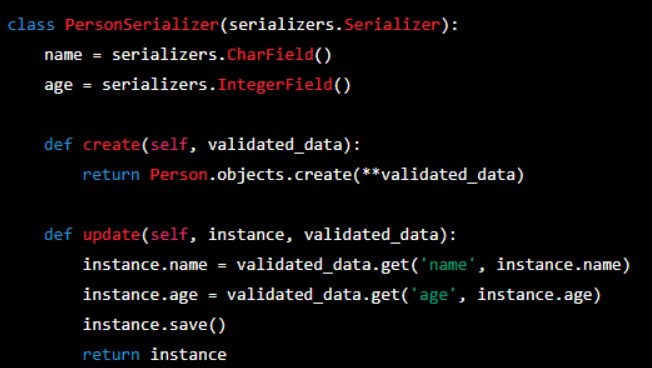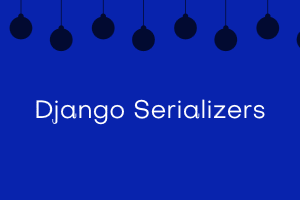Introduction
Django serializers provide a way to convert complex data, such as querysets and model instances, into different formats, like JSON, XML, etc. They also provide deserialization, which allows parsed data to be converted into complex types.
Implementation
To implement a serializer, you need to create a class that inherits from the base serializers. Serializer class and define the fields that you want to serialize. These fields can be primitive types, such as CharField and IntegerField, or more complex types, such as ModelSerializer and HyperlinkedModelSerializer.
Validation
Django serializers provide built-in validation for incoming data through the use of fields and their associated validation methods. For example, a CharField can have a max_length attribute that will be enforced during validation. Additionally, custom validation can be added by defining a validate method on the serializer.
Usage
To use a serializer, you first instantiate it with the data that you want to serialize. Then, you call the is_valid() method on the serializer to perform validation. If the data is valid, you can call the save() method on the serializer to save the serialized data to the database.
Example

Conclusion
Django serializers offer a convenient way to convert complex data into various formats and handle the validation of incoming data. They are flexible and can be tailored to fit the needs of your application.
If you have skills in PHP programming and you want to enhance your career in this field, a PHP certification from StudySection can help you reach your desired goals. Both beginner level and expert level PHP Certification Exams are offered by StudySection along with other programming certification exams.




